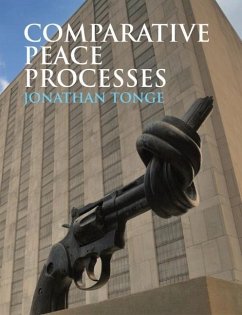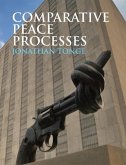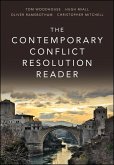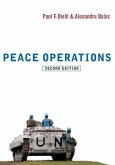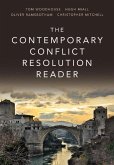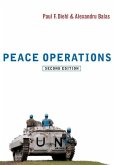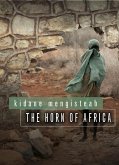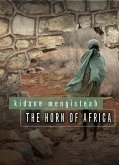The term 'peace process' is now widely used to describe attempts to manage and resolve conflict. As the nature of conflict has changed, so the range of available tools for producing peace has grown. Alongside a plethora of political actions, there is now a greater international awareness of how peace can be brokered and policed. As a result, peace processes now extend well beyond the actuality of ceasefires and an absence of war to cover legacy issues of victims, truth and reconciliation.
This book expertly examines the practical application of solutions to conflict. The first part analyses various political means of conflict management, including consociational power-sharing, partition, federalism and devolution. The second explores the extent to which these political formulas have been applied - or ignored - in a wide range of conflicts including Bosnia-Herzegovina, Northern Ireland, Israel-Palestine, Lebanon, the Basque Region and Sri Lanka.
Comparative Peace Processes combines optimism with a realist approach to conflict management, acknowledging that the propensity of dominant states to engage in political experimentation is conditioned by the state of conflict. It will be a valuable resource for anyone interested in general theories of political possibilities in peace processes and the practical deployment of political ideas in conflict zones.
This book expertly examines the practical application of solutions to conflict. The first part analyses various political means of conflict management, including consociational power-sharing, partition, federalism and devolution. The second explores the extent to which these political formulas have been applied - or ignored - in a wide range of conflicts including Bosnia-Herzegovina, Northern Ireland, Israel-Palestine, Lebanon, the Basque Region and Sri Lanka.
Comparative Peace Processes combines optimism with a realist approach to conflict management, acknowledging that the propensity of dominant states to engage in political experimentation is conditioned by the state of conflict. It will be a valuable resource for anyone interested in general theories of political possibilities in peace processes and the practical deployment of political ideas in conflict zones.
"This excellent book fills a real gap in the literature. In it, Tonge guides the reader expertly through the complex ideas and histories of peace processes whilst maintaining a critical, and formidable, oversight."
Kristian Brown, University of Ulster
"This is a rigorously researched, clear-sighted and thoughtfully argued analysis of comparative peace processes. Tonge does not shy away from the painful realities of the conflicts covered or the failures of political intervention, but he inspires us to believe that we are capable of learning from the mistakes of the past."
Feargal Cochrane, University of Kent
"Professor Tonge has put together a highly accessible and highly relevant work that asks urgent questions around achieving peace and making it stick. Drawing on a wide range of examples, he unpacks the political deal making that lies behind peace processes."
Roger Mac Ginty, University of Manchester
Kristian Brown, University of Ulster
"This is a rigorously researched, clear-sighted and thoughtfully argued analysis of comparative peace processes. Tonge does not shy away from the painful realities of the conflicts covered or the failures of political intervention, but he inspires us to believe that we are capable of learning from the mistakes of the past."
Feargal Cochrane, University of Kent
"Professor Tonge has put together a highly accessible and highly relevant work that asks urgent questions around achieving peace and making it stick. Drawing on a wide range of examples, he unpacks the political deal making that lies behind peace processes."
Roger Mac Ginty, University of Manchester

